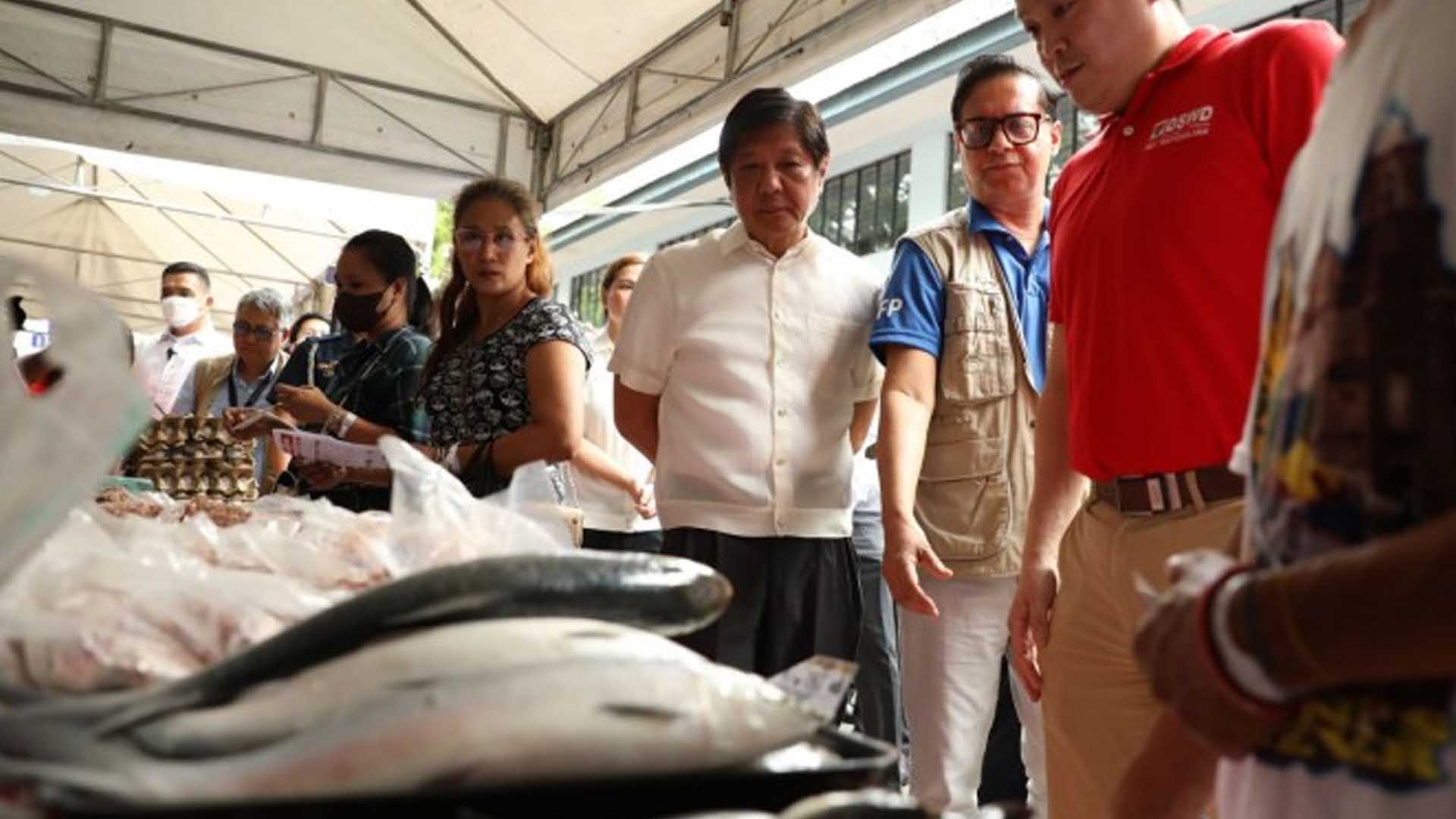President Ferdinand R. Marcos Jr. on Tuesday stressed the importance of the “Pantawid Pamilyang Pilipino Program” (4Ps) to address the needs of poor households in the country.
Marcos issued the statement in an interview in Tondo, Manila, when asked if he would order the eventual termination of the 4Ps following the pilot implementation of the “Walang Gutom 2027: Food Stamp Program” at the Don Bosco Youth Center Tondo – Technical Vocational Education and Training Center.
“Sana. Ibig sabihin kasi kapag kaya na natin itigil iyan, sasabihin natin, ibig sabihin wala nang nangangailangan. Maganda talaga kung maabot natin ‘yun (I hope so. If we stop that, that means no one no longer need assistance. It’s good if we are able to reach that),” he said during the launch of the food stamp program.
“Pero kahit papaano, kung minsan tinatamaan halimbawa ng bagyo, tinatamaan ng peste, tinatamaan ng kung anu-ano, eh kailangan pa rin tulungan. ‘Yung 4Ps eh pantawid ‘yun eh (However, we still need to help those who will be affected by typhoon, pests, and other disasters. That’s what 4Ps is all about),” he added.
Marcos said the 4Ps will be terminated only if all beneficiaries already have jobs and can provide for the needs of their families.
The 4Ps, implemented by the Department of Social Welfare and Development (DSWD), is a national poverty reduction strategy and a human capital investment program that provides conditional cash transfer to qualified household beneficiaries.
It likewise provides social protection, social assistance, social development, and other complementary support services in partnership with concerned agencies, local government, and other stakeholders towards improving the health, nutrition, education, and socioeconomic aspects of life.
Before the media interview, Marcos led the pilot implementation of the food stamp program, one of the DSWD’s new priority programs to reduce the incidence of involuntary hunger experienced by low-income households through monetary-based assistance in the form of an Electronic Benefits Transfer (EBT) card loaded with food credits.
Ending hunger, malnutrition
Marcos said combatting hunger and malnutrition is one of his administration’s priorities.
“It is of course always the dream of any government, of any leader that we are able to do something about hunger around our countries because that is the most important, the most insidious influence of our people that gets in the way of the development of each individual and thus the entire society,” he said.
“To be able to provide the kind of nutrition that will make our children, that will make our people healthy and productive in their daily lives, we have an electronic transfer card and it is a system that we will use. It is not something that we are just starting now… The DSWD will go around and show you how to use this card and how to avail of the benefits that come through this card,” Marcos added.
The President also thanked the DSWD, Asian Development Bank (ADB), and other partners of the government for the successful launch of the food stamp program.
Marcos said ending hunger is the “dream of this administration.”
“That is what we are hoping to achieve in this administration, that by the end of 2028, we can say that we have done everything to reduce hunger and poverty in our country and to be able to ensure that we can provide a good, healthy and productive life for our people,” he said.
A total of 3,000 low-income families identified through the DSWD’s Listahanan (List) 3 will be the pilot beneficiaries of the program.
The priority beneficiaries include the poorest households prone to food insecurity, as well as pregnant and lactating women, and households with children aged two years and below.
The Food Stamp Program will be piloted in identified areas in Metro Manila, Cagayan Valley Region, Bicol Region, Caraga Region, and the Bangsamoro Autonomous Region in Muslim Mindanao.
The beneficiaries of the program will receive an EBT card with food credits amounting to PHP3,000 per month for six months (July to December).
The food credits can be used to purchase nutrition-rich food items from DSWD-accredited partner retailers.
To ensure that the family beneficiaries will be able to consume different kinds of healthy food, PHP1,500 or 50 percent of the total amount of food credits will be allocated to purchase carbohydrate-rich foods such as rice and bread; PHP900 (30 percent) are for proteins such as chicken or pork; and PHP600 (20 percent) for vegetables, fruits, oil, salt, or other condiments.
The Food Stamp Program will be implemented with the help of the World Food Program and the ADB. (PNA)









